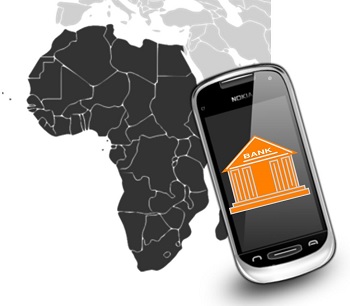Customers that have never had access to financial institutions are using smartphones to change their capabilities.
Many of the countries in Africa have been extremely underserved by banks for a range of different reasons, but mobile payments are now bringing financial services to customers who have always been unbanked.
This is especially true in Nigeria, where mobile money is becoming an important driver in the local economy.
The Central Bank of Nigeria has launched a massive initiative to boost the use and access of mobile payments and money. Among the reasons that this is an important effort is that it will provide them with a tremendously larger market as it will mean that those who were underbanked or completely unbanked will suddenly be able to access financial services by way of their mobile devices.
With mobile payments and banking, location no longer presents a barrier to being able to reach consumers.
This access to mobile banking is bringing individuals who had been far removed from participation in much of mainstream commerce into the ability to take part in widespread economic transactions. Therefore, this means that consumers that had previously been outside of the center of commerce will be accessible to industries beyond simple payments and into pensions, insurance, and other areas.
 None of those industries had been able to establish physical locations that would allow them to be able to sell to consumers in the traditional way, but by using mobile commerce and accepting transactions over smartphones, this has changed the game, entirely.
None of those industries had been able to establish physical locations that would allow them to be able to sell to consumers in the traditional way, but by using mobile commerce and accepting transactions over smartphones, this has changed the game, entirely.
As the growth in telecom and smartphone and mobile technologies continues to grow and expand, and as the financial services industry increasingly rises to the challenge of offering mobile payments and banking services, the situation has altered across entire African countries. People who live in rural communities that are nowhere near phone lines and cables are gaining access to banking and transactions through financial institutions and telecoms such as UBA and Airtel, MTN and Diamond Bank, First Bank, Stanbic IBTC Bank, Ecobank and Globacom.
Similarly, M-PESA has been making a tremendous splash in reaching the unbanked and rural Kenya, where the mobile money system has taken off extensively, with 17 million users (one third of the adult population of the country) and 40,000 agents. Every day, that service processes over 2 million transactions.

 According to the results of an internal revenue, the Department of Finance found that its existing payment channels are not aligned with contemporary payment technology. As such, those issuing payments to the agency have had to rely on traditional, less convenient forms of payment. The agency wants to improve its payment systems in order to make them more convenient and efficient for consumers.
According to the results of an internal revenue, the Department of Finance found that its existing payment channels are not aligned with contemporary payment technology. As such, those issuing payments to the agency have had to rely on traditional, less convenient forms of payment. The agency wants to improve its payment systems in order to make them more convenient and efficient for consumers.